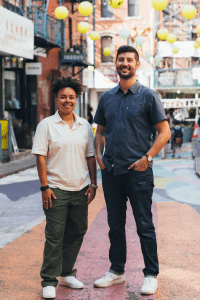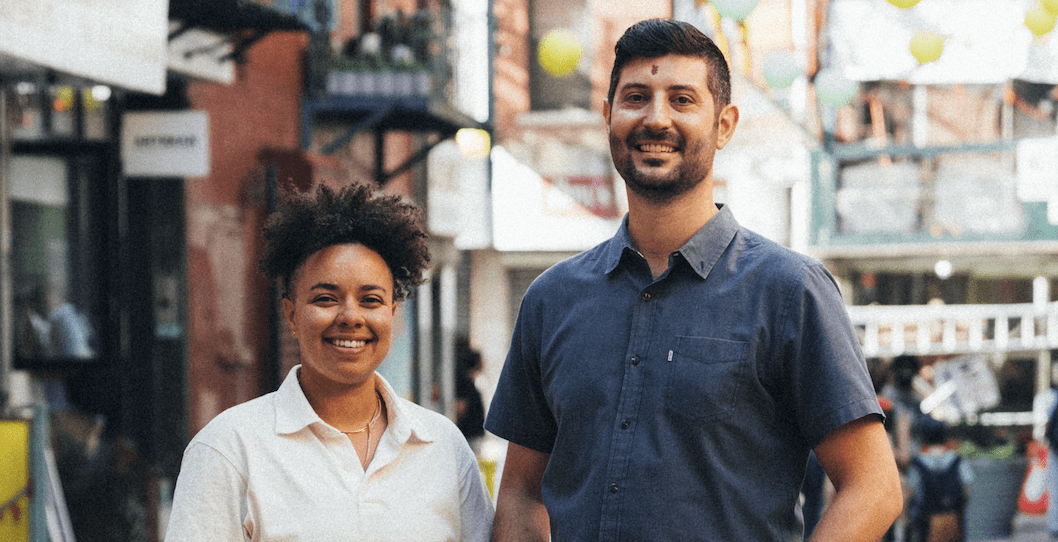Two friends are creating a modern digital platform to help humanitarian organizations receive cryptocurrency donations.
By Iris Amador
In the business world, the term “blue ocean” refers to a new market with little competition and no barriers to hinder the success possibilities of innovators. Alicia Cepeda Maule and Steven Aguiar, two young entrepreneurs based in New York, are in front of an open sea of opportunity.
Both experienced digital strategists and friends since their student years at Brown University, Alicia and Steven have combined their talents to start Givepact, a modern platform converting crypto to cash for nonprofits.
“We saw that most non-profit organizations in the United States do not have a way to participate in the cryptocurrency exchange and take advantage of this new economy, so we built a platform that converts those donations into cash,” says Alicia, who has served as digital director for Innocence Project, an organization that works to free innocent people from prison.

“We have talked to around 80 organizations in the last year about how they can benefit and achieve their goals through Web3,” Steven says. “None of them even had a mechanism to receive donations in cryptocurrency.”
One and a half million non-profit organizations operating in the country will have a secure, transparent, and efficient channel to receive donations in Bitcoin, Ethereum, and some ERC-20 tokens for free.
“The transaction will be free for the organization and 5% for the donor,” explains Alicia.
From Giving Block data, they’ve found that people who donate with cryptocurrencies give more than those who donate cash. “We know their donations are up to 80 times more,” she specifies.
Steven emphasizes that donations in cryptocurrency will be immediately converted into dollars. “If someone donates the equivalent of a thousand dollars in Ethereum to an organization, apart from the transaction cost, that is what they will receive in their bank,” he assures.
In 2021, donations in digital coins reached $500 million. And there are indications that the figure will increase annually. Cryptocurrency donors also receive tax benefits in return.
Crypto holders are mainly millennials, the generation of people born between the years 1980 and 2000.
It is estimated that there are more than 34 million owners of digital coins in the country, of which two-thirds are people of color.
Alicia, of Colombian descent, and Steven, of Cuban descent, see broad growth possibilities in the new digital economy — which is characterized by being more democratic — and want more members of the Latino community to enjoy them.
“This is a space that has opened many opportunities for Latinos, who have historically been excluded from traditional practices in capital management,” Alicia says. “Giving that access is very important to us.”











